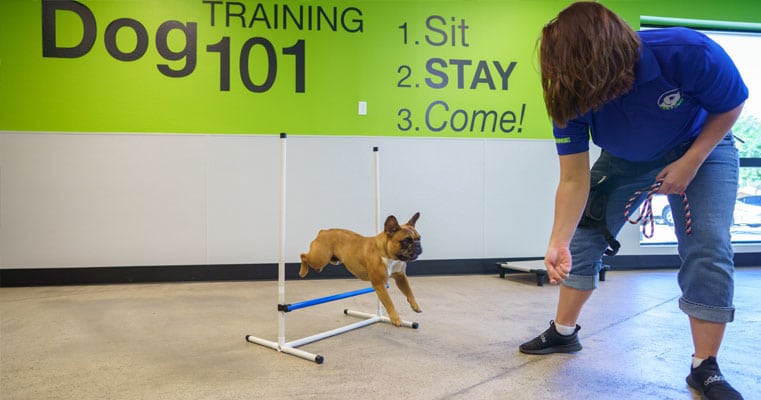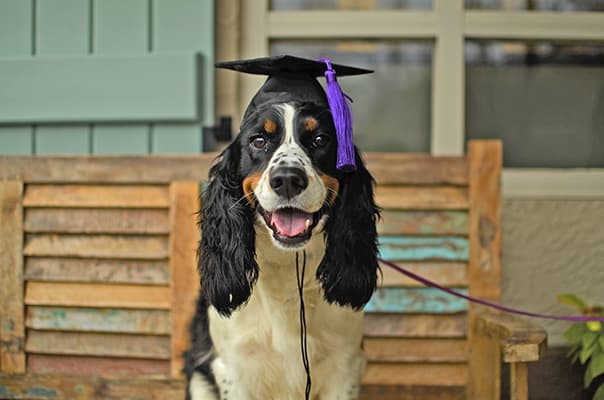Unleash Potential with Dog Training Near Me: Find Your Local Professionals
Unleash Potential with Dog Training Near Me: Find Your Local Professionals
Blog Article
Unlock Your Pet dog's Prospective: Proven Pet Training Methods for Success
Efficient dog training is a nuanced procedure that hinges on understanding canine behavior and employing scientifically backed strategies. By incorporating favorable reinforcement, developing clear commands, and prioritizing socialization, pet proprietors can cultivate an efficient relationship with their animals.
Recognizing Pet Dog Actions
Recognizing pet dog habits is essential for efficient training and fostering a positive relationship between canines and their proprietors. An extensive understanding of canine body movement, vocalizations, and social communications is important for identifying their feelings and requirements. Dogs connect mainly via non-verbal hints; for instance, a wagging tail may show exhilaration, while pinned ears can signal anxiety or entry.

Moreover, ecological elements play a considerable role in forming a canine's actions. Changes in regular, brand-new surroundings, or the existence of strange individuals can cause stress and anxiety or anxiety in canines. Recognizing these triggers allows proprietors to minimize adverse responses and develop ideal training methods.
Inevitably, a deep understanding of canine habits lays the foundation for successful training methods, enhancing both habits and the general bond in between the pet and its owner. dog training charlotte. This understanding is essential for promoting a well-adjusted, pleased canine buddy
Positive Reinforcement Methods
Effective training counts heavily on positive support strategies, which have actually been shown to produce substantial results in forming wanted behaviors in pet dogs. This strategy includes awarding a pet dog for displaying details habits, therefore enhancing the possibility that these behaviors will certainly be repeated. Benefits can take various types, consisting of treats, praise, toys, or play, depending upon what inspires the specific pet dog.

It is vital to progressively terminate benefits as the pet dog learns the behavior, transitioning to intermittent reinforcement. This technique preserves the habits in time while protecting against dependency on constant benefits. By concentrating on favorable reinforcement, instructors can cultivate a relying on partnership with their pets, promoting a cooperative and healthy training environment that enhances overall obedience and efficiency.
Developing Constant Commands
A basic aspect of successful pet dog training is the facility of consistent commands. Uniformity in commands is crucial for effective interaction in between the trainer and the dog. When commands are consistent, pet dogs learn to associate certain words with wanted behaviors, which accelerates the training procedure and improves understanding.
To develop consistent commands, it is vital that all member of the family use the same terms and motions. If one person uses "rest" while another states "sit down," it can create confusion for the pet dog. Select clear, distinctive words for commands and make certain everyone associated with the canine's training abides by these options.
Enhance commands with regular practice, guaranteeing that the pet dog receives adequate opportunities to react properly. When a pet efficiently complies with a command, prompt favorable reinforcement should comply with.
Lastly, hold your Continued horses. Establishing consistent commands takes time and effort. With devotion and quality, you will help your dog develop a strong understanding of assumptions, ultimately bring about a well-behaved buddy.
Socialization and Direct Exposure
Interacting socially a dog is vital for cultivating a certain and well-adjusted buddy. This procedure entails subjecting your pet to a range of atmospheres, individuals, and various other animals to develop their social abilities and flexibility. Early socializing, preferably between the ages of three to fourteen weeks, is vital, as it prepares for a canine's future habits.
Throughout socialization, goal to supply favorable experiences in various setups, such as parks, active roads, and homes with various other animals. Present your pet to various stimulations, consisting of sounds, sights, and scents, making sure that each encounter is fulfilling. This exposure assists mitigate worry and stress and anxiety, leading the way for an extra resilient pet dog.
Taking part in regulated team play sessions with other pet dogs can likewise improve social skills, teaching your pet dog ideal communications and boundaries. Constantly monitor your pet's convenience degree throughout these experiences, gradually raising direct exposure as their self-confidence grows. Remember, the objective is to create an all-round pet that flourishes in varied situations, advertising a harmonious partnership with both people and other animals. Prioritizing socialization will significantly add to your pet's general joy and habits throughout their life.
Conquering Common Educating Difficulties

Dogs may battle to concentrate in unfamiliar or busy setups. Gradually desensitize your canine to distractions by starting visit this site training in a silent atmosphere and slowly introducing more stimulations as they end up being efficient.
Furthermore, behavioral issues like jumping or too much barking can come to be aggravating. Address these by teaching different behaviors, such as dog doing obstacle course resting comfortably when welcoming guests. Uniformity and patience are important; reinforce wanted habits continually and avoid scolding, which can lead to complication.
Lastly, identify that each pet dog is distinct, and training timelines may vary. Dressmaker your technique to your canine's specific requirements, and look for expert guidance if essential. With perseverance and the ideal techniques, conquering these obstacles can result in a trained, happy canine companion.
Final Thought
Finally, unlocking a pet's prospective demands an extensive approach that incorporates an understanding of canine habits, the application of favorable support strategies, and the facility of regular commands. Early socializing and direct exposure to varied atmospheres additionally improve a pet's adaptability and self-confidence. By resolving usual training obstacles with customized methods and patience, a cooperative and unified partnership between pet dog and trainer can be cultivated, inevitably causing a well-behaved buddy capable of thriving in different scenarios.
Efficient dog training is a nuanced procedure that pivots on comprehending canine behavior and using medically backed methods.Recognizing dog habits is crucial for efficient training and cultivating a positive connection between dogs and their owners.Efficient training depends greatly on favorable reinforcement strategies, which have been shown to produce considerable outcomes in forming preferred habits in pet dogs. When commands are consistent, canines learn to link certain words with wanted behaviors, which speeds up the training procedure and improves understanding.
In final thought, opening a pet dog's possible requires a thorough method that integrates an understanding of canine habits, the application of positive reinforcement strategies, and the establishment of constant commands.
Report this page